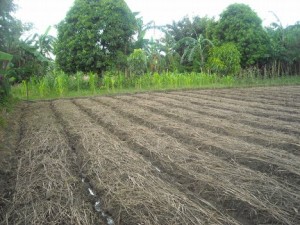Bharat Book Bureau press release | Aug 10, 2009 | excerpt
Executive Summary:
Korea's major crop, rice, will have an unexpectedly good 2008/2009 harvest, with forecast production rising 9.8% year-on-year (y-o-y) to 4.84mn tonnes, despite a reduction in the area planted. The growth will be the first increase in rice production in Korea since 2005. Despite the increase this year, however, we expect the long-term falling trend in rice production to continue over our forecast period. Increasing pressure on land will see the area planted continuing to fall despite yield improvements. The major story in South Korean agriculture this past quarter has been attempts to secure agricultural land overseas. Korea is in the vanguard of wealthy food-deficit countries attempting to shore up food security by purchasing land in poorer countries for agricultural investments. The Gulf states are following a similar strategy. The biggest, and one of the most controversial, such attempts was the deal between Daewoo Logistics and the government of Madagascar to lease 1.3mn hectares of land in the country for corn production. Unsurprisingly, deals of this nature have been arousing nationalist sentiment in the countries targeted. The land lease in Madagascar has now been called off following the ousting of president Marc Ravalomanana. New President Andry Rajoelina vocally protested against the deal in his successful unseating of Ravalomanana. Africa is not the only target for Korean companies, however. In April, Hyundai Heavy Industries, better known for shipbuilding, struck a deal to purchase a majority stake in Russia's Khorol Zerno LLC, which owns a 10,000 hectare farm in the far east of Russia. Similar projects are also on the horizon in Indonesia. Korea's massive import requirements for grain and shortage of agricultural land mean that buying land abroad may seem like a good solution to guarantee food security. However, with land rights such an emotive issue, large foreign holdings in poor and oft unstable countries will always be an easy target for politicians hoping to score points among the rural poor. This will make any large investment inherently risky especially at times of high food prices when sensitivity surrounding the issue is heightened. With Korean agriculture already propped up heavily with subsidies, there is little chance of dramatic increases in production at home. So despite the risks and the Madagascan setback, the scramble for land will continue. In April, the agriculture ministry gave its official blessing to companies seeking to invest in farmland abroad and raised the prospect of incentives such as cheap loans.













